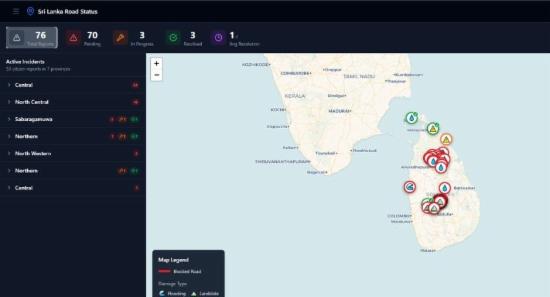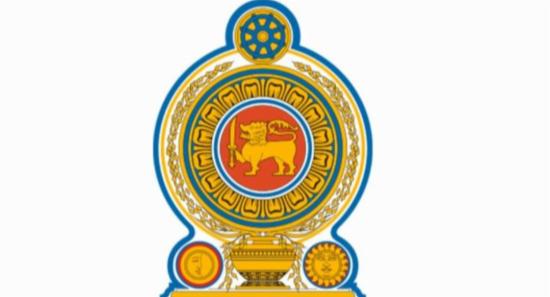.webp)
UNHRC to present Sri Lanka report on 20th
Colombo (News 1st): The Office of the High Commissioner for Human Rights is set to consider the report on reconciliation, human rights and accountability in Geneva tomorrow (March 20). The Permanent Mission of Sri Lanka in Geneva stated that Sri Lanka's report will be considered in the 1st session. A resolution headed by the United States on Sri Lanka was passed at the United Nations Human Rights Commission on October 1st, 2015. Sri Lanka also acted as co-sponsors on this resolution.
At the UNHRC session in March 2017, Sri Lanka was granted an extension of a period of 2 years to fulfill these obligations. Tomorrow (March 19), the High Commissioner on Human Rights is due to present a complete report on the completion of the recommendations on the report.
The actions taken on Sri Lanka by the Office of the Human Rights Commissioner will be based on the findings of this report. A group representing the government including Foreign Minister Tilak Marapana arrived in Geneva to respond to the claims that are included in the report.
Meanwhile, a fresh resolution on Sri Lanka concerning reconciliation, human rights, and accountability, is to be presented at the Human Rights Council Session in Geneva by a core group including Great Britain. The government has announced that they are prepared to co-sponsor this resolution so as to get a two-year extension.
Chairman of the Sri Lanka Podujana Peramuna Professor G.L. Peiris noted that yesterday the representatives of the Joint Opposition met his Excellency the President and requested that he get involved and issue an order to ensure that Sri Lanka in no way agrees to co-sponsor any resolution on the country.
Meanwhile, thoughts were expressed on the situation in Sri Lanka in sessions that took place today (March 19). The leader of the Tamil National Peoples' Front Gajendra Kumar Ponnambalam noted that the Sri Lankan state, however, has not only gone after the Tamil liberation movement, but also any individual or institution that has in its perception supported the Tamil struggle for self-determination.
He went onto note that media institutions, journalists and media workers have been amongst the worst affected. Ponnambalam noted that of the 48 media personnel that were killed during the war, 41 were Tamils who were targeted by the state and even among the 7 non-Tamils who were killed, at least 2 of them were killed for exposing the state atrocity against the Tamils.
Ponnambalam said the Sri Lankan states latest target is the media institution Tamil Thanthi, its staff are being continuously threatened by the TID for publishing an article about a martyr who struggled for the right for self determination. He noted that this is despite the government's assurance to the council that it will repeal the PTA. He noted that for as long as the UN and UNHRC keeps the right to self-determination with mere tokenism, those who truly struggle to realize this inalienable right will continue to be victims.
Meanwhile, a hartal took place across the North Eastern provinces today (March 19), demanding that Sri Lanka not be given an extension to fulfill the promises made at the UNHRC. As a result, shops, banks and all other institutions were closed. Reports indicate that transport activities were also affected. A large group including the relatives of those who are missing, university students and politicians carried out a walk in Batticaloa along with the hartal.
Views regarding the government's plan on co-sponsoring a rollover resolution during the 40th regular session of the UNHRC were expressed in parliament today (March 19).
UNP MP Dr. Wijeyadasa Rajapakshe noted that as per article 32 of the constitution, to do all such acts and things, not inconsistent with the provisions of the constitution or written law, as, by international law, custom or usage the President is authorized or required to do so.
He went onto note that it is this article that gives authority to enter into an agreement with a foreign country. He noted that when inquired from President Sirisena, he noted that he had not granted permission to co-sponsor the resolution for another two years. Rajapakshe noted that when G.L. Peiris was the foreign minister, Sajin Vaas Gunawardena was appointed above him, powers were decentralized and he was empowered to even assault the ambassadors.
MP Rajapakshe noted that is how foreign policies were established, and this is the issue at present. He added that the current foreign minister Thilak Marapana is not aware of the decisions that are made by the Ministry of Foreign Affairs and even the Secretary of his Ministry is not aware of such decisions. Therefore, he questioned who is responsible for such decisions?
The parliamentarian added that certain decisions are not made at the Ministry of Foreign Affairs, certain meetings of the Ministry of Finance take place at the Finance Minister's residence and state officials or ministers do not attend these meetings. He pointed out that such meetings are only attended by NGO personnel and friends. He noted that the Sri Lanka's ambassador in Geneva receives orders from Mano Tittawella.
Who is Mano Tittawella? Rajapakshe noted that he is an individual who represents and speaks on behalf of everyone.
MP Wijeydasa Rajapakshe went onto question; " What position does Mano Tittewalla hold in the government? What right does he have to make decisions regarding Sri Lanka's foreign policies? Do you approve this?"
The MP added that after the USA withdrew from the UN human rights council, there is no allegation against Sri Lanka and from the president to the soldier, lives are in danger.
Responding to this Leader of the House Minister Lakshman Kiriella noted that Sri Lanka was isolated from the international community and it was on edge for economic sanctions. He noted that after the 2015 elections, during these few years, the government have succeeded in reducing international pressure and the resolution has even praised Sri Lanka several times.
Minister Kiriella noted that co-sponsoring the resolution is a different matter. He notes that this resolution will not negatively impact our country as the officials of the UNHRC has told him, as well politicians of the North, that if devolution of power in the country can be achieved, provincial councils can be further strengthened.
The minister went onto note that it was Mahinda Rajapaksa who jailed the most important war hero, Sarath Fonseka. Minister Lakshman Kiriella said this is not regarding the protection of war heroes, these are narrow political agendas.
Other Articles
Featured News





.png )


-819606_550x300.jpg)







-819380_550x300.jpg)


-812087_550x300.jpg)
-810262_550x300.jpg)
















.gif)